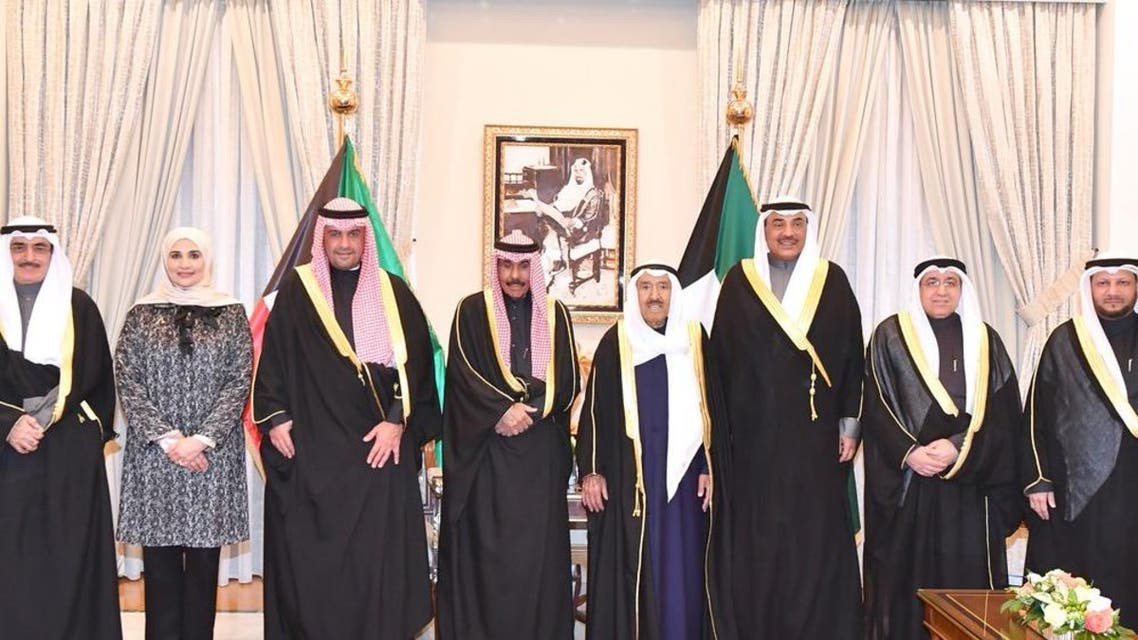Kuwait has appointed new finance and trade ministers in a cabinet reshuffle, as part of a broader set of changes announced on Sunday by the country's Emir, Sheikh Mishal Al-Ahmad Al-Jaber Al-Sabah. This decision comes amidst heightened attention on the country's economic performance and ongoing efforts to navigate challenges related to energy supply and demand.
Nora Suleiman Al-Fassam, a seasoned banker with over 23 years of experience in corporate finance and investment banking, has been appointed as the new Minister of Finance and Minister of State for Economic and Investment Affairs. Al-Fassam's appointment marks a significant shift in the country's financial landscape, bringing expertise from the private sector to a key governmental role. Her prior position as Chief Strategy Officer at Boubyan Bank of Kuwait, a Sharia-compliant institution, suggests a potential focus on innovative financial solutions and strategic economic development.
The new Minister of Commerce and Industry is Khalifa Abdullah Dhahi Ajeel Al-Askar, whose previous experience as Chairman of the Financial Regulator and a member of the Board of Commissioners of the Capital Markets Authority points towards a strong understanding of financial regulations and market dynamics. Al-Askar's appointment signals an emphasis on robust economic policies and the potential for fostering a competitive business environment.
Reshuffling the Cabinet: A Look at Other Changes
Beyond the appointments of the finance and trade ministers, the cabinet reshuffle involved a number of other changes, including:
Retained Ministries
- Minister of Information and Culture and Minister of State for Youth Affairs: Abdulrahman Badah Al-Mutairi
- Minister of Public Works: Dr. Nora Khaled Al-Mashaan
- Minister of State for Communications Affairs: Omar Saud Abdulaziz Al-Omar
- Minister of Electricity, Water and Renewable Energy: Mahmoud Abdulaziz Mahmoud Bushehri
- Minister of Social Affairs and Family and Childhood Affairs: Dr. Amthal Hadi Hayef Al-Huwailah
New Portfolio Assignments
- Minister of State for Municipal Affairs and Minister of State for Housing Affairs: Abdullatif Hamed Hamad Al-Meshari
Acting Ministries
- Minister of Higher Education and Scientific Research and Acting Minister of Education: Dr. Nader Abdullah Mohammad Al-Jallal
The cabinet reshuffle follows a period of heightened focus on Kuwait's energy sector, with the country experiencing power outages in parts of the country during the summer months due to disruptions in gas supply. While Kuwaiti officials have assured the public that there will be no further disruptions, the issue has brought to the forefront the need for robust energy infrastructure and policies to ensure reliable electricity supply, particularly during peak demand periods. The new Minister of Electricity, Water, and Renewable Energy will face the challenge of implementing measures to address the energy supply concerns and ensure a stable energy future for Kuwait.
The Implications of the Cabinet Reshuffle: Looking Ahead
The cabinet reshuffle signals a strategic shift in Kuwait's approach to economic management. The appointments of Al-Fassam and Al-Askar reflect the government's commitment to harnessing private sector expertise and fostering a dynamic business environment. The new finance minister's experience in corporate finance and investment banking could lead to innovative policies designed to attract foreign investment, diversify the economy, and promote sustainable growth. The new trade minister's background in financial regulation suggests a focus on creating a transparent and competitive environment for businesses to thrive.
The cabinet reshuffle also points towards a renewed focus on strengthening economic infrastructure and addressing the challenges facing the energy sector. The government's efforts to secure energy supplies and ensure the reliability of electricity services will be crucial in mitigating the risks of future disruptions. The new cabinet, with its blend of experience and expertise, will be tasked with navigating these challenges and driving Kuwait's economic progress forward.
This cabinet reshuffle serves as a testament to the ongoing evolution of Kuwait's economic landscape. It represents a strategic shift towards a more proactive approach to attracting investment, diversifying the economy, and addressing the challenges of energy security. The appointments of seasoned professionals from the private sector underscore the government's commitment to leveraging private sector expertise to drive economic growth and address the challenges facing the country. As Kuwait embarks on this new chapter, the focus will be on ensuring the implementation of effective policies to achieve its economic objectives and position itself as a leading player in the regional and global economy.

















